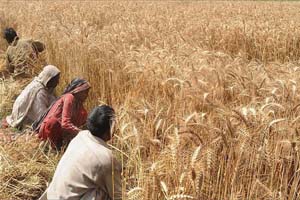
Wheat Product Trade
Ministry for National Food Security and Research and a delegation of the Pakistan Flour Mills Association (PFMA), held a meeting to discuss crucial matters linked with the wheat sector and for an agreement related to the development of the flour milling sector with the objective of national food security to design sustainable trade policies that support the development without compromising domestic food security and economic growth of the country. The PFMA delegation demanded enhanced industrial activity led to sustainable supply chains and import-cum-export of wheat products to aid increase in foreign exchange reserves. Permitting import-cum-export of wheat-based products can support the local flour milling industry, access international markets, and create employment in the region. Pakistan Agricultural Storage and Services Corporation (PASSCO) maintain wheat reserves and the strategic release of wheat reserves, for emergency use only and will not be released into the open market.
|
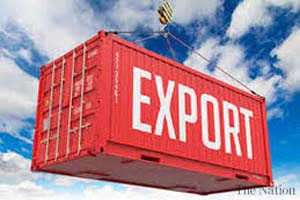
Structural Reform to Export Led Growth
Pakistan’s tariffs have improved after touching their lowest levels in the early 2000s. The recent shifts towards higher tariffs have intensify prevailing constraints on businesses, declining the competitiveness of Pakistan’s exports. Regardless of the increased tariff protections Pakistan’s export performance is constantly weak. In the 1990s, exports accounted for over 15% of GDP have declined to just over 10% in 2024. The lowest export figures in the region and among middle-income countries. The need of comprehensive structural reform to complement tariff reforms and unlock export-led growth in Pakistan has highlighted by The World Bank. Tariffs have been higher due to the extended use of para tariffs, including regulatory duties and additional customs duties. These higher tariffs have been used to protect domestic industries from foreign competition, but also caused market distortions and selective protectionism. The World Bank advised that the current tariff structure is detrimental to export growth, current tariff structure includes high average rates of protection, cascading import duties, and discretionary exemptions. Pakistan’s business and investment are strained due to an unaligned exchange rate regime, high energy costs, regulatory complexity, limited access to finance, and the dominance of state-owned enterprises. Import tariffs on raw materials and intermediates, have further undermined firm productivity, sales, and wages. Potential export growth of Pakistan can be cracked by addressing structural issues to provide foundation for competitive sustainable economic growth in the global market.
|

Pakistan’s National Fisheries Policy
Pakistan is working to present an inclusive first ever policy at national level National Fisheries Policy in consultation with all shareholders. The fisheries sector is very fragmented and commitment to invigorating and revolutionizing Pakistan’s marine economy with an aim to boost Pakistan’s seafood exports and attract investment. The draft policy has been designed and would be shared to discussed with stakeholders across the country. The Ministry of Maritime Affairs has consulted the Food and Agriculture Organization of the United Nations for making Pakistan’s national fisheries policy draft, and would be finalized after discussion and consultation with shareholders and subsequent approval by the federal cabinet. The National Fisheries Policy will aid as a proactive approach in the fisheries sector for sustainable development, boosted exports, and increased international ventures and investment.
|
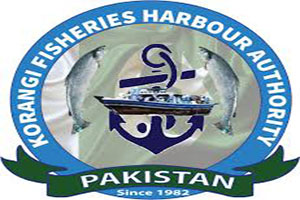
Broader the Blue economy
The initiative of generating more than $100 million in economic activity over the next five years by modernizing the Korangi Fish Harbor (KOFHA) is part of Pakistan’s broader effort to develop its blue economy and enhance the maritime sector, this initiative will contribute to Pakistan’s $375 billion GDP. This includes the construction of a floating jetty to enhance vessel handling, reduce turnaround time, and accommodate increased fishing activity. The present jetty will also undergo a comprehensive renovation, integrating technology-driven solutions to improve accessibility and operations. Over 3,000 jobs will generate across sectors such as construction, logistics, fish processing, and fishing-related services, and to improve seafood processing capacity by 50% and will involve strategic infrastructure improvements designed to increase seafood exports with modern facilities to improve efficiency, hygiene, and transparency, create thousands of jobs, and boost operational.
|
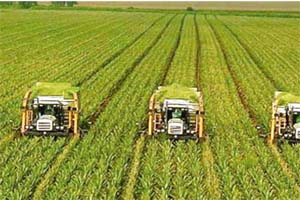
Relief for Agriculture – Budget 2025 - 2026
The Pakistan Budget 2025–2026 introduces several relief measures aimed at revitalizing the agricultural sector, which is critical for the country's economic stability and food security. Sustainable GDP growth is impossible without government support to ease the financial burden on farmers for the agricultural sector. Relief measures in budget 2025 -2026 are to reduce the cost of cultivation and reduced fertilizer prices by offering tax relief for agriculture sector, eliminating the 18% GST on local cotton, including lint and cottonseed, considering limiting tax-free imports of yarn and fabric under the Export Facilitation Scheme to support local cotton. To ease the financial burden on farmers, Rs 5 billion allocated for the Kissan Scheme to provide financial assistance to farmers and Rs 6 billion subsidy announced on imported urea to reduce fertilizer costs.
|

Chinese Firm in Khyber Pakhtunkhwa – Energy Sector Investment
Beijing CNNC Sunshine Electric Technology a delegation from China, met with Khyber Pakhtunkhwa Governor to underscored the province’s energy requirements and to discuss energy sector challenges with potential investment in the province. Discussions focused on the province’s energy needs, ongoing power projects, and the company’s interest in contributing to energy infrastructure. Proposed foreign investment is pivotal in economic development and service delivery covered the supply of electricity, transformers, and related equipment to underserved areas of Khyber Pakhtunkhwa, as well as employment generation for local residents.
|
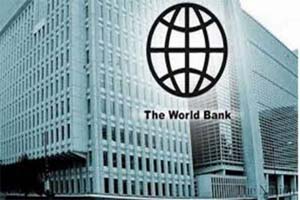
Country Partnership Framework (2026–2035)
The World Bank has publicized a foremost investment plan of $40 billion for Pakistan to supports Pakistan’s own economic reform plan, known as “Uraan Pakistan”. The funding capital will be provided under a new 10-year Country Partnership Framework (2026–2035). Country Partnership Framework (2026–2035) is a two-phase plan, Pakistan will receive $20 billion in sovereign loans in the first phase of this plan from the International Development Association (IDA) and the International Bank for Reconstruction and Development (IBRD), two major branches of the World Bank. In the second phase remaining $20 billion will come through private sector investments, and arranged by International Finance Corporation that focuses on private businesses. The purpose is to attract international and local investors to support business growth and job creation in Pakistan. The partnership aims to support Pakistan, while achieving and transforming the country’s long-lasting economic growth through innovation, sustainable development, and better use of natural and human resources in several chief areas like education, healthcare, clean energy, and climate change.
|

First State-Backed Bitcoin Reserve
Pakistan is making its presence in the digital finance world, during the Bitcoin Vegas 2025 event the First State-Backed Bitcoin Reserve of Pakistan has been launched. Taking a big step into the world of digital finance a national Bitcoin wallet to store the country’s official digital assets also introduced. For Bitcoin mining and artificial intelligence (AI) data centers, Pakistan plans to use 2,000 megawatts of extra electricity. Pakistan Digital Assets Authority (PDAA) is a new authority to manage this new digital direction. This authority will be regulating and guiding all blockchain-based financial activities in the country. Use modern technology of digital presence to create more opportunities and support financial inclusion that will boosts the economy and good use of the country’s energy resources. This initiative is Pakistan’s growing interest in becoming a part in the global crypto market.
|
|
© 2025 Alpine Marine Services Private Limited
all rights reserved
|
|
|